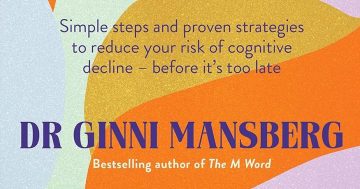Bruce Kasanoff* explains the difference he sees between changing your opinion and changing your mind.
 Changing your opinion is easy. Changing your mind is hard. I’ll explain the differences.
Changing your opinion is easy. Changing your mind is hard. I’ll explain the differences.
Your opinion is fleeting: “I’ll have a tuna sandwich on a roll. No wait, make that chicken salad, please.”
You might intend to replace your 2006 car with a new Subaru, but then at the last minute decide on a Toyota.
These are all your opinion at a certain moment, which then get transformed into a decision when you actually act on each.
Your mind — the thing you used to form those opinions and decisions — remains pretty constant unless you make a deliberate effort to change it.
Why would you change your mind?
Maybe you’re tired of making the same mistakes.
Perhaps you have come to realise that the greatest obstacles to your success aren’t ‘out there’ but inside you.
Or — and this might be the best answer of all — you would simply like to broaden your perspective and grow as a human being.
So how do you change your actual mind? Here are some possibilities.
Change your environment: If you live in a small town, try spending a month or a year in a large city… or vice versa.
Instead of driving your own car to work, try taking a bus or carpool.
Give up your private office in favour of (gasp) a cubicle; or no single desk at all.
Learn a new way of thinking: Study Mandarin or some other language completely foreign to you.
If you are computer illiterate, take a programing course.
If you hated science in high school, study physics at night.
All of these will change the way you think.
Create a new bubble for yourself: Are your internet algorithms preventing you from seeing poetry from Egypt or short stories from a guy named Bill in Topeka?
In other words, with each passing day, you become more and more insulated from content that doesn’t fit neatly into your personal bubble.
You can subvert these well-intentioned but ultimately limiting efforts by inventing a mind-broadening second social media profile for yourself.
Get a new email address, use a slightly different name (try your middle name), and make this new person your bolder, more open-minded alter ego.
Don’t communicate via this identity; just use it as your own personal search engine for new and interesting ideas.
If you are liberal, use this second profile to read conservative news and analysis.
If you are a detail-oriented numbers type, start visiting arts and entertainment sites and maybe even watch a few avant-garde documentaries.
Shift your social circle: Many of us tend to surround ourselves with people just like us.
With (or without) kids; with (or without) money; deeply tied into (or against) the status quo; extremely practical (or creative).
To change, you don’t have to abandon all your friends, but you will have to make some very different ones.
Will any of this really change your mind?
Yes, no, and maybe.
Yes, drastic changes in your habits and perceptions can start to rewire your brain.
To cite a trivial example, a few years back I decided it would be fun to learn how to hit tennis balls with my left hand.
So every time I was warming up, I started by hitting with my left hand.
At first, I felt as though it was impossible, but weeks later I could keep a rally going using just my left hand.
I’m not scientific enough (yet) to explain what happened inside me, but my brain shifted from ‘I can’t do this’ to ‘this is easy’.
No, you can’t invest a few weeks and change your IQ from 119 to 150.
You won’t become rich and charismatic by starting to read The Atlantic.
Maybe, just maybe, you will change your mind enough to find common ground with people you previously felt were so different than you, and so wrong.
That would be a wonderful outcome, don’t you think?
*Bruce Kasanoff is a ghostwriter for entrepreneurs. He is the author of How to Grow Your Career by Helping Others. He can be reached at kasanoff.com
This article first appeared at Forbes.com











